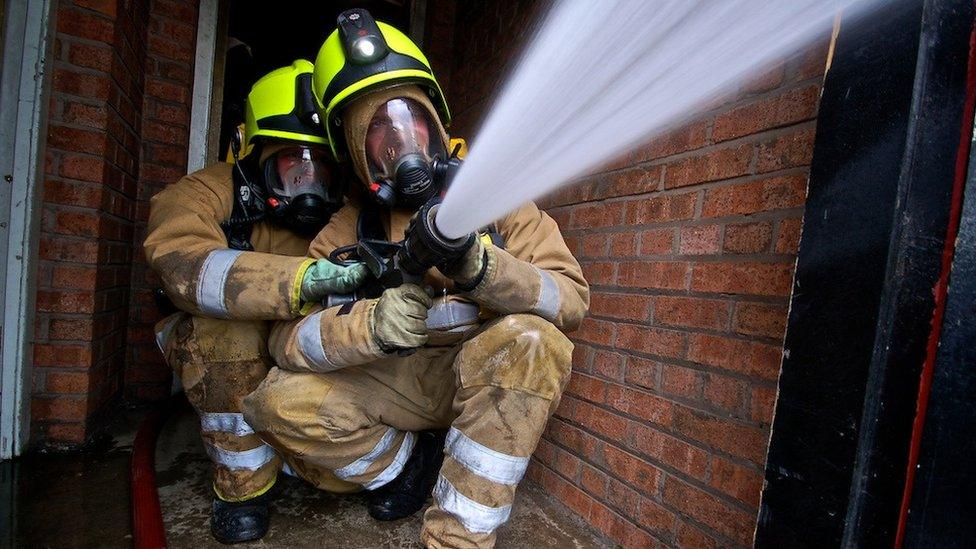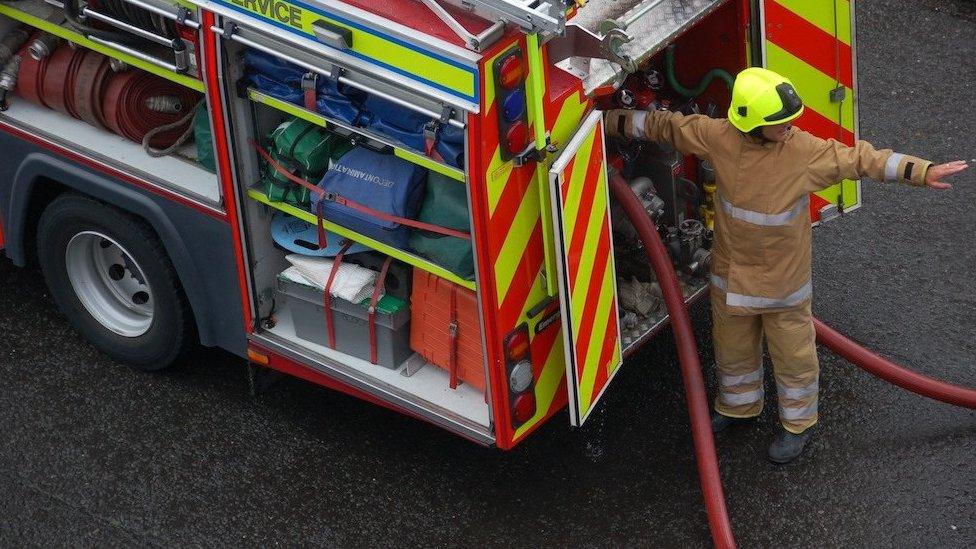Call for more flexible requirements for rural fire crews
- Published

Calls have been made for the Scottish Fire and Rescue Service to change requirements on firefighters in remote and rural areas.
Rules on minimum staffing mean volunteers in north west Sutherland cannot use their fire appliance.
Community leaders say greater flexibility is needed in crew numbers and training.
SFRS says it will not cut back on safety, but is introducing new ways to train up more firefighters.
Fire stations throughout the Highlands and Islands depend heavily on volunteers who are paid a retainer and a call-out fee to attend incidents.
But the fire service is struggling to keep numbers up and local councillors claim fire cover is at dangerous levels, particularly in the Lochinver area where the locally-based fire appliance cannot be used due to lack of staff.
The councillors are urging SFRS to relax the rules so that at least some willing volunteers can attend emergencies.
'Adequate training'
Caithness councillor and former senior police officer Matthew Reiss said it was time for the fire service to review its rules on the required make-up of fire crews.
"For example, if you are trapped in your car in a road accident the fire brigade insists that four firefighters must be on the fire engine before it physically leaves the station," he said.
"As a retried police officer my view would be to do what you can. If one police officer is available he or she would go to that call, and the same for the ambulance service."

In Lochinver, local community council chairman David Slator said the four weeks of training required to sign up as a retained firefighter puts many people off volunteering.
"Ultimately, you want the fire service personnel to be safe and to have had the adequate training," he said.
But he added: "There is a feeling that in small remote communities is there really the requirement to have the same levels of staffing and training as you do in an urban setting.
"That is an issue, I think, when it comes to recruitment, the levels of training required does influence the number of people coming forward or number of people who have come forward who have then been prepared to continue to that training."
'Some flexibility'
The SFRS said it cannot cut corners on training but area manager John Macdonald is looking at ways to make it more accessible for people living and working in rural areas.
He said: "Firefighting is an inherently dangerous and risky activity and therefore it would be wholly inappropriate for me to reduce the level of training that is designed to make these people safe when they respond to incidents.
"What I can do though, and there is some flexibility for me to do that, is to look at how we deliver the training.
"There is some scope for me there to look at perhaps a more modularised approach to how we deliver training and take the training to the individual."
Mr Macdonald also said money was being invested in the fire service which would bring benefits to cover in the Highlands and Islands.
He added: "This is a service for the community by the community and we need people to step forward and help protect the communities in which they live."